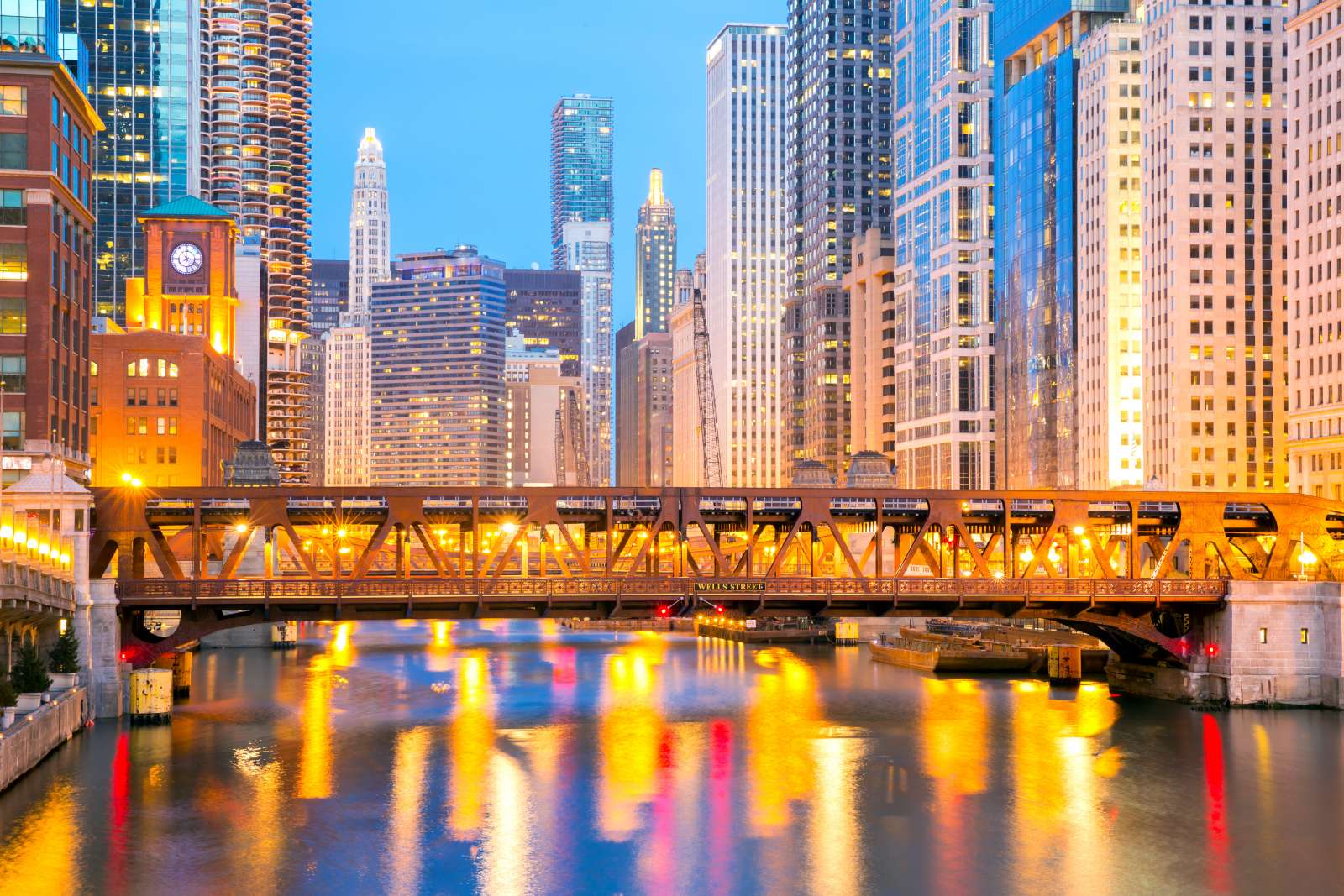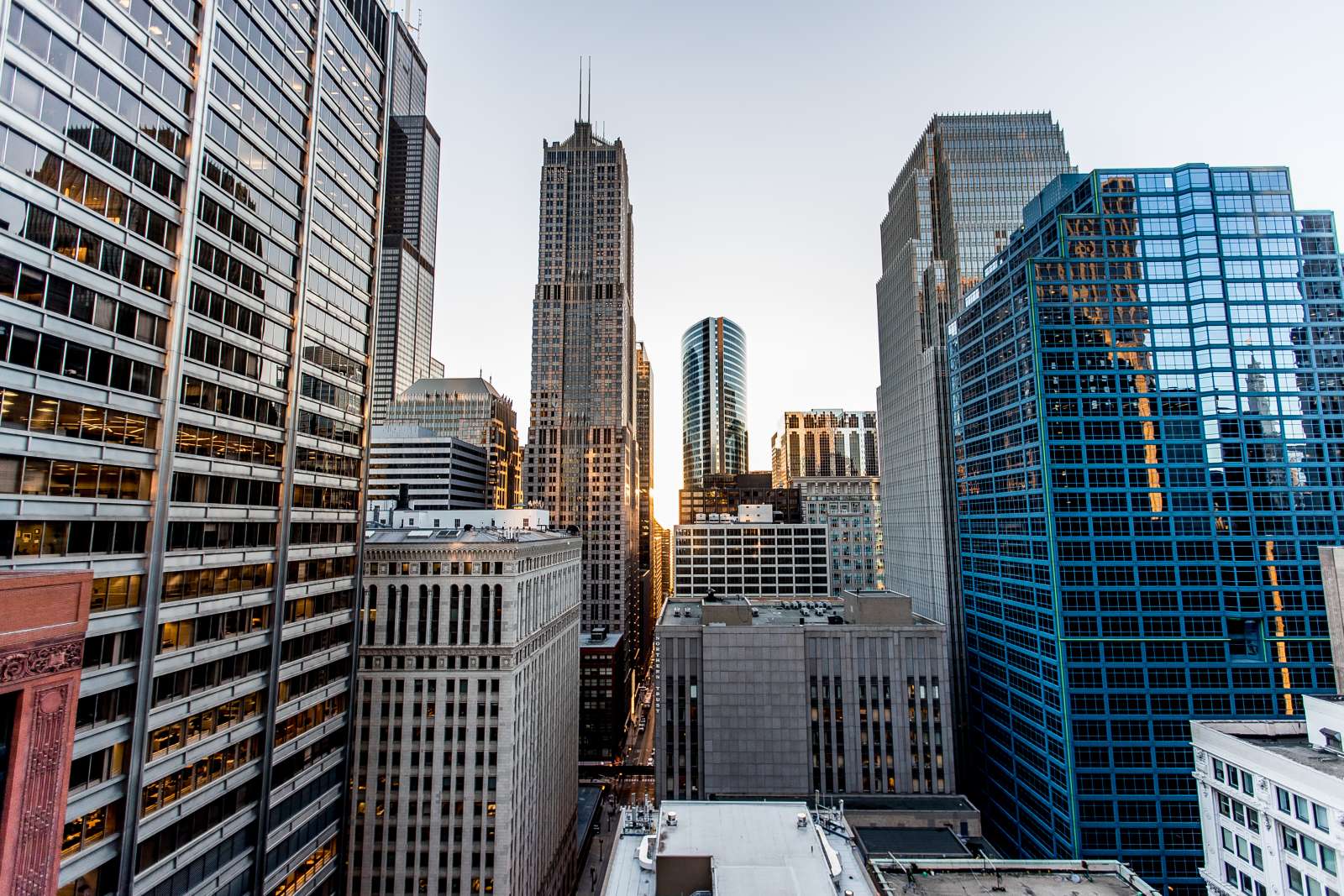The City of Chicago, Cook County and the State of Illinois offer a variety of incentives to encourage businesses to expand or locate in the area.
World Business Chicago (WBC) — a not-for-profit economic development organization focused on advancing Chicago's business environment — has provided a list of incentive programs for companies exploring relocation or expansion in the City of Chicago. Your business may qualify for a package of assistance depending on the size and location of the project and the number of jobs created or retained. Try using WBC's Incentive Program Filter in their Site Selector app to find out more about which incentives may be available to your business.
World Business Chicago can provide an overview of available incentive programs, explain the qualification process and introduce you to the government agencies that determine eligibility. Throughout the application process, WBC works to coordinate the agencies involved to meet your business needs. Contact a member of the WBC staff for more detailed information.
Some of the major incentive programs are outlined below, courtesy of World Business Chicago.
Primary Programs
Economic Development for a Growing Economy (EDGE):
EDGE is one of Illinois’ most significant incentives and is available for investments of $5 million and the creation of 25+ jobs. Companies with 100 or fewer employees can qualify with an investment of $1 million and the creation of 5+ jobs. The EDGE program provides a tax credit allowing qualifying companies to reduce the cost of doing business in Illinois in relation to similar costs in other states. The amount of the tax credit is based upon the amount of Illinois income taxes paid by newly hired/relocated employees (i.e., approximately 3% of a company’s expanded payroll). The credits are available for 10 years and can be carried forward for up to 5 years.
Tax Increment Financing (TIF):
Many municipalities throughout the Chicago region have designated specific areas as TIF Districts. The City of Chicago has been particularly aggressive in the use of this economic development tool. TIF works by capturing the incremental increase in property value brought about by the improvement of a designated area and reinvesting those revenues back into the area, including assisting with project costs associated with further development.
TIF funds can be used to support the new development or the rehabilitation of existing buildings, including:
- Land acquisition
- Site preparation
- Building rehabilitation
- Public improvements
- Interest subsidies
- Workforce training
- Daycare facilities and operation
City of Chicago TIF District Maps
City of Chicago TIF Application Form (PDF)
Chicago Streamlined TIF Application:
The program provides expedited access to valuable grants for the improvement of industrial, commercial, retail or residential mixed-use properties TIF districts citywide. The program incorporates an easy-to-use application form and efficient approval process to pay up to 25 percent of renovation, expansion or redevelopment costs. Assistance ranges from $25,000 to $1,000,000. Grants are paid in annual installments to participants following project completion. The grants do not have to be repaid.
Cook County Property Tax Incentives (Class 6b, 7 & 8):
Normally, the County assesses commercial and industrial property at 38% and 36% of market value, respectively. However, an incentive is offered to companies that develop new facilities, substantially rehabilitate existing structures (typically excludes deferred maintenance work), or the reutilization of abandoned buildings. Eligible property owners or tenants will be assessed at 16% of market value for 10 years, 23% in the eleventh year, and 30% in the twelfth year. In the absence of this incentive commercial and industrial property would be assessed at the normal County rates. If a property is within an Enterprise Zone, then local taxing bodies may abate the property taxes 100% for up to 30 years.
New Markets Tax Credits (NMTC):
NMTCs are a financial assistance tool available through the Chicago Development Fund (CDF), a non- profit subsidiary of the City of Chicago. Investors provide CDF with capital, which it uses to make loans to qualified real estate projects. These investors in turn receive NMTCs (a federal income tax credit) that varies with the size of their investment.
With the City’s Department of Planning and Development, CDF has launched three loan programs geared toward specific project types:
- Expansion for existing industrial companies, or developers of multi-tenant industrial facilities
- Grocery-anchored retail located in "food deserts"
- Community facilities
Loans are provided with interest rates 2 to 2.5 percentage points below market, loan-to-value ratios as high as 95% of development costs, and the potential for partial debt forgiveness after seven years.
Projects may be eligible for one of these loans programs if they are located in qualified Census tracts and meet other federal NMTC program criteria. See CDF’s Qualifying Areas map for general eligibility throughout the City; specific eligibility criteria vary slightly for each loan program.
An application for NMTC assistance (pdf) and additional program and contact information can be found on the website for the City’s Department of Housing and Economic Development.
Enterprise Zones:
An Enterprise Zone is a specific geographic designated by a municipality or the State of Illinois to receive tax incentives and other benefits in order to stimulate economic activity and revitalize the area. Businesses located in Enterprise Zones are eligible to receive various incentives, including:
- Investment Tax Credit: a state investment tax credit of 0.5% is allowed for taxpayers that invest in qualified property within the zone. Qualified property includes machinery, equipment and buildings. The credit may be carried forward for up to five years.
- Jobs Tax Credit: allows a business to take a $500 credit on their Illinois income taxes for each job created in the zone for which a certified dislocated worker or economically disadvantaged individual is hired. The credit may be carried forward for up to five years. A minimum of five eligible employees must be hired to qualify for the credit.
- Building Materials Sales Tax Exemption: A 6.25 sales tax exemption is permitted on building materials to be used in an Enterprise Zone. The materials must be purchased from a place that is located in the municipality or county which has established the zone.
- Machinery and Equipment/Pollution Control Facilities Sales Tax Exemption: A 6.25% sales tax exemption on machinery and equipment used in manufacturing, assembly or pollution control.
- Exemption from the state tax on gas and electricity as well as administrative charges
- Exemption from real estate title transfer tax
- Property tax reduction
- Low interest loans
U.S. Empowerment Zone Program:
The Empowerment Zone (EZ) program offers special financing and tax incentives for qualified businesses in order to stimulate private investment and create jobs within designated communities. These incentives include:
- Employer wage credits of up to $3,000 for wages and certain training expenses paid on behalf of a qualified zone resident that works within an EZ
- Tax deductions of up to $37,500 of the cost to certain EZ property
- Tax-exempt bond financing for businesses seeking to expand within the EZ
- Employer wage credits up to $2,100 for hiring "high-risk youth" who reside in Empowerment Zones or Enterprise Communities
- Empowerment Zone businesses that are located in one of Chicago's Enterprise Zones may be eligible for additional benefits, including property, sales and income tax relief
Chicago's Empowerment Zone consists of three non-contiguous areas on the City's West, near Southwest and South Sides.

Other City Incentives
Bank Participation Loan Program:
Low interest financing for 50% of eligible project costs. City of Chicago participation will not exceed $250,000 for commercial projects or $500,000 for industrial projects. Funds can be used for construction, renovation and fixed assets.
CDBG Float Loans:
A two-year loan with an interest rate fixed at 40% of prime administered by the City of Chicago. Funds can be used for new construction, demolition, rehabilitation, land/building acquisition, machinery, equipment and related costs. Minimum loan is $1 million. Must be backed by an irrevocable letter of credit from a qualified bank.
Façade Rebate Program:
A City of Chicago program that provides rebates for building façade rehabilitation. Industrial buildings are eligible for 30 percent of approved costs up to $10,000 per unit. Commercial buildings are eligible for 50 percent of approved costs up to $5,000 per leasable unit.
Industrial Revenue Bonds:
Privately funded tax-exempt bonds (usually greater than $2 million) issued under City of Chicago authority for construction/renovation/acquisition of industrial properties. The tax exempt status allows the bonds to carry a low interest rate.
Laboratories Facilities Fund:
A City of Chicago fund that allocates TIF assistance to “second-stage” or “graduate” technology companies seeking to construct lab space ranging in size from 5,000 to 25,000 square feet. Provides up to 25% of eligible base lab construction costs to a maximum of $1.4 million.
Mayor’s Office of Workforce Development: Workforce Solutions:
Workforce Solutions helps Chicago businesses find, train and retain employees. Workforce Solutions designs custom-fit job training programs for employers who require workers with certain skills. Workforce Solutions can identify, prescreen and train Chicagoans to meet companies’ specific needs.
Micro Loan Program:
A City of Chicago program that provides up to $20,000 for small businesses that may be unable to attain funding through conventional sources. Rates are 3% or the prevailing Federal Reserve Discount Rate.
Small Business Improvement Fund:
Provides matching TIF grants of up to $50,000 to help small and mid-sized industrial and commercial companies improve their facilities in specially designated areas of Chicago.

Other State Incentives
Business Development Public Infrastructure Program (BDIP):
The Illinois BDPIP program provides low-interest financing to units of local government for public improvements on behalf of businesses undertaking expansion or relocation projects that meet the program criteria and demonstrate great potential for creating and retaining jobs.
Employer Training Investment Program:
The Employer Training Investment Program (ETIP) supports Illinois workers’ efforts to upgrade their skills in order to remain current in new technologies and business practices, enabling companies to remain competitive, expand into new markets and introduce more efficient technologies into their operations. ETIP grants may reimburse Illinois companies for up to 50 percent of the cost of training their employees. Grants may be awarded to individual businesses, intermediary organizations operating multi-company training projects and original equipment manufacturers sponsoring multi-company training projects for employees of their Illinois supplier companies.
High Impact Business (HIB):
A High Impact Business is determined by the State of Illinois and must involve a minimum $12 million investment resulting in the creation of 500 full-time jobs or an investment of $30 million resulting in the retention 1,500 full-time jobs. Benefits include eligibility for sales tax exemption on building materials, an investment tax credit, an exemption from state gas and electric tax, and a state sales tax exemption on manufacturing equipment purchases, repair and replacement parts.
Job Training and Economic Development:
Grants provided to train industry-linked low-wage/low-skilled workers or industry-linked training for disadvantaged persons in Illinois. The goal of the program is to develop training programs that link the work force needs of local industries with the job training and placement needs of disadvantaged persons in the community.
Large Business Development Program:
Provides incentive financing to encourage large out-of-state companies (500 or more employees) to locate in Illinois, and also encourages existing Illinois companies to undertake major job expansion or retention projects.
Manufacturer’s Purchase Credit:
A 6.25% tax credit for businesses that purchase manufacturing or graphic arts machinery and equipment.
Research and Development Tax Credit:
A 6.5% credit for increasing research activities in Illinois.
State Treasurer’s Employ Illinois Program:
Under this program, the Treasurer can make a low interest deposit to an Illinois financial institution funding a new business facility project or business expansion in Illinois, generally based on the estimated annual payroll of new Illinois jobs created. That institution then lends the money at below prevailing interest rates to the borrower. Treasurer project participation ranges from two to five years. Project expenditures can include land, equipment and inventory purchases, working capital and capital improvements leading to job creation.
NOTE: Illinois does not collect a state property tax on real estate or personal property. All property other than real estate is exempt from the property tax in Illinois. Thus, all classes of personal property, including machinery, equipment, inventories, and intangibles, are exempt. Many states do tax such property.
Other Federal Incentives
Chicago Foreign-Trade Zone (FTZ):
Materials and goods shipped to a FTZ are treated as not yet having entered the U.S. for Customs purposes. Higher duty inputs can be assembled into lower duty products before U.S. entry; items can be displayed and returned to country of origin without customs duties; customs costs can be reduced through streamlined reporting. Warehouse, distribution, manufacturing, assembly, display, processing and other activities can be conducted in a designated zone. The Illinois International Port District files applications with the U.S. Foreign-Trade Zones Board on behalf of interested companies.
